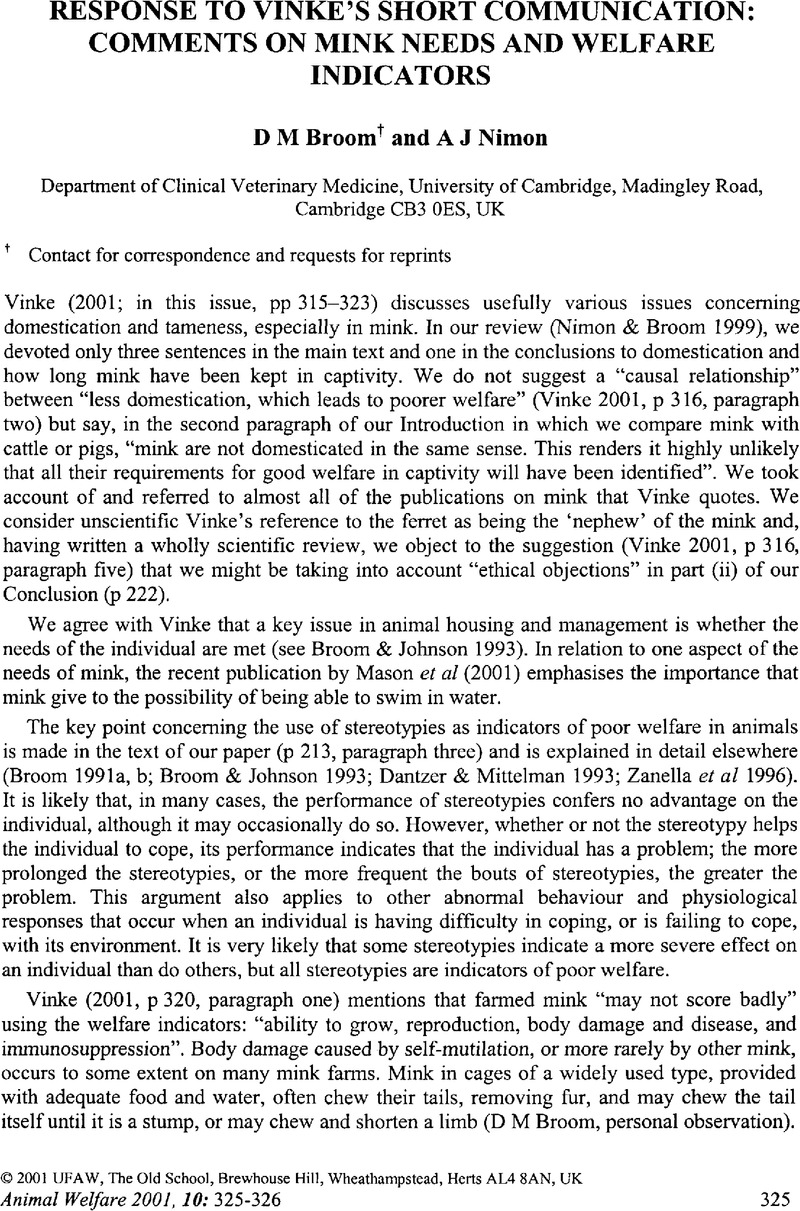No CrossRef data available.
Article contents
Response to Vinke's Short Communication: Comments on Mink Needs and Welfare Indicators
Published online by Cambridge University Press: 11 January 2023
Abstract
An abstract is not available for this content so a preview has been provided. Please use the Get access link above for information on how to access this content.

Information
- Type
- Reply
- Information
- Copyright
- © 2001 Universities Federation for Animal Welfare
References
Broom, D M 1991a Animal welfare: concepts and measurement. Journal of Animal Science 69: 4167–4175CrossRefGoogle ScholarPubMed
Broom, D M 1991 b Assessing welfare and suffering. Behavioural Processes 25: 117–123CrossRefGoogle Scholar
Broom, D M and Johnson, K G 1993 Stress and Animal Welfare p 211. Kluwer: Dordrecht, The NetherlandsGoogle Scholar
Dantzer, R and Mittelman, G 1993 Functional consequences of behavioural stereotypy. In: Lawrence A B and Rushen J eds) Stereotypic Animal Behaviour: Fundamentals and Applications to Welfare pp 147–172. C A B I: Wallingford, Oxon, UKGoogle Scholar
Mason, G J, Cooper, J and Clarebrough, C 2001 Frustrations of fur-farmed mink: mink may thrive in captivity but they miss having water to romp about in. Nature 410: 35–36CrossRefGoogle Scholar
Nimon, A J and Broom, D M 1999 The welfare of farmed mink (Mustela vison) in relation to housing and management: a review. Animal Welfare 8: 205–228CrossRefGoogle Scholar
Vinke, C M 2001 Some comments on the review of Nimon and Broom on the welfare of farmed mink. Animal Welfare 10: 315–323CrossRefGoogle Scholar
Zanella, A J, Broom, D M, Hunter, J C and Mendl, M T 1996 Brain opioid receptors in relation to stereotypies, inactivity and housing in sows. Physiology and Behavior 59: 769–775CrossRefGoogle ScholarPubMed

